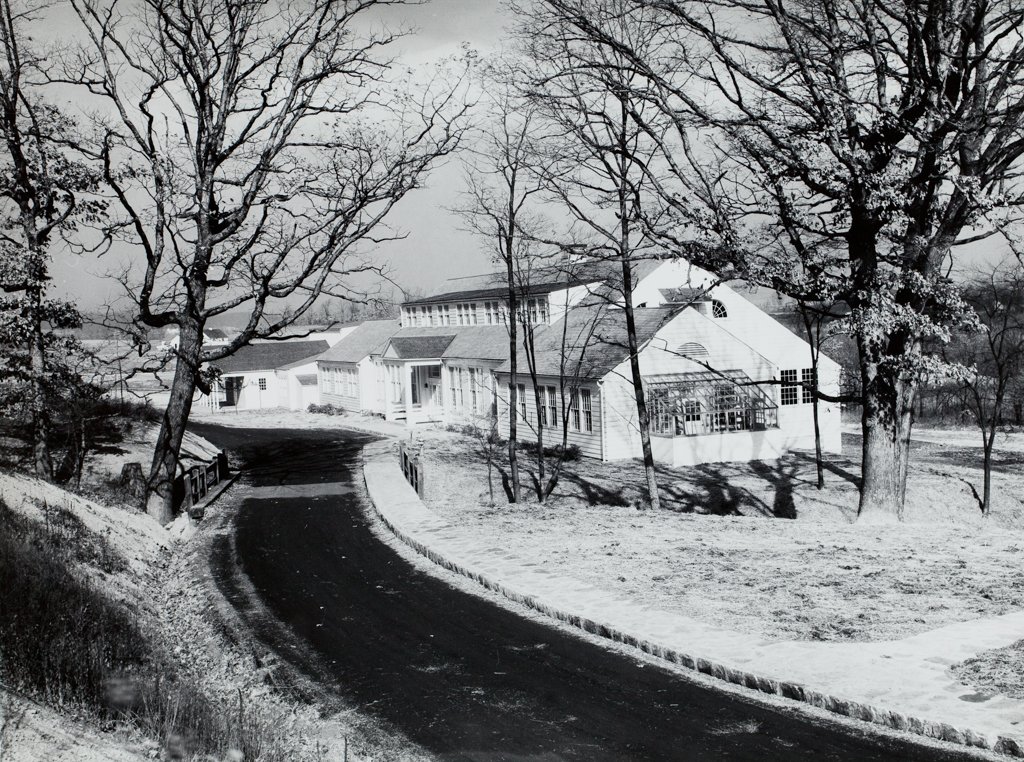Written by: Claire Tyron, AmeriCorps serving at Arthurdale Heritage
Arthurdale Heritage has a number of ongoing projects to accompany the traveling Smithsonian exhibit Crossroads: Change in Rural America. The exhibit examines our understanding of rural places and their history. Arthurdale and the other sites in the state hosting the exhibit will be thinking about topics like mental health, labor, and community memory. They will also be discussing the representations of their communities and West Virginia. Often is portrayed as a state that is stuck in the past. That West Virginia is an isolated place, where people exclude and hurt others. With this in mind Crossroads asks a variety of questions like why should we revitalize rural places, why do rural communities matter, what can we do for the people who remain there, why do people leave, and what is our vision for the state’s future?
Library of Congress
These are questions that Arthurdale Heritage has been thinking about as we create events and design exhibits about Arthurdale’s history, about the present challenges that Preston County faces, and how different people imagine the future. In the history of Arthurdale, there were acts of exclusion. When the government was creating Arthurdale in the 1930s they did not accept people of color, particularly African Americans, into the community. This was primarily due to Jim Crow laws. The exclusionist part of our community’s history is hard to contend with. It’s difficult to ask questions which challenge our views of our history and our community. It means that we have to question the views that we have about other people and how we treat them because of that. At Arthurdale we want to reconsider the past, present, and future of West Virginia and our community through conversations with others.
Library of Congress
We decided to interview people of different backgrounds about their experiences growing up across the state. We focused our interviews on people from marginalized groups, those voices that fall outside the mainstream of society. The technical definition of marginalized communities is groups that experience discrimination and exclusion politically, culturally, and economically because of unequal power relationships. What that discrimination looks like is a people insulting someone because of their sexuality, or not hiring someone because of the color of their skin. The most prominent examples of those communities are people of color, the LGBTQIA+ people, and people of faith traditions outside of Christianity. Other marginalized communities are the working class, senior citizens, and people with disabilities.
Jeff Mann, from WV Public Radio
The first phase of our project focused on interviewing members of the LGBTQ+ community and people of color. In line with the questions proposed in Crossroads we asked our interviewees to explain to us their relationship with West Virginia. Particularly, why they chose to stay or why they chose to leave? In other cases some people chose to leave and then ultimately returned. We heard from people like Jeff Mann, an author and poet from Hinton, West Virginia. In this interview he describes growing up in the 1960s and 70s in Summers County and the impact that had on who he is as a person. We also talked to Aerianna, a West Virginia University student from Mingo county. She opened up about her love of the state but also the struggles that her peers face when deciding to stay. These interviews are the basis for AHI’s new Youtube series Marginalized Voices: Loving and Leaving West Virginia. In the series you’ll hear stories from Jeff, Aerianna, and others about their lives and really about the challenges they face being LGBTQ+ or a person of color in a predominantly white, heterosexual world. This project is a safe space for individuals to share their stories and for others to learn about the experiences of people who are actively othered.
Marginalized Voices: Loving and Leaving West Virginia is an ongoing project at Arthurdale Heritage. If you are a member of the LGBTQ+ community or a person of color and are interested in being interviewed please use the email claire@arthurdaleheritage.org.






